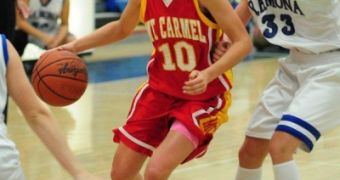The importance of an active life and, most importantly, of sports can never be stressed enough. In light of the latest research, sports should become an integrated part of the lives of all teens, with parents being strongly encouraged to make sure this happens, as it’s been proven that the beneficial effects of weight-bearing sports practiced in adolescence can still be felt even 40 years later.
The study was undertaken by researchers at the Suzuka University of Medical Science, and included 46 Japanese women, aged 52-73, some of them having practiced weight-bearing sports, others several types of physical exercise, while the rest none of the two in their teen years. Since all these women had gone through menopause, the effects of sports early in their life were all the more notable since, past menopause, bone loss occurs naturally.
The results returned were surprising and, at the same time, encouraging: the women who had practiced weight-bearing sports had greater bone mineral content in the spine and the thigh bone as opposed to those who had not done any sports whatsoever. Moreover, their outer thigh bone was larger, which means it’s easier for them to withstand fractures. Since none of the women included in the study are no longer doing any sport, the conclusion can be only one, namely that this particular type of physical activity has positive results that span decades.
Among the sports that the study has revealed to be beneficial for the bones, especially if practiced between the ages of 12 and 18, are tennis, volleyball, basketball, handball and softball, as well as sprinting. All these strengthen bones into older age because they imply supporting the entire weight of the body, which makes bones react to the forces they are being subject to by becoming stronger.
According to several reports in the media, the study has been published in the British Journal of Sports Medicine.

 14 DAY TRIAL //
14 DAY TRIAL //